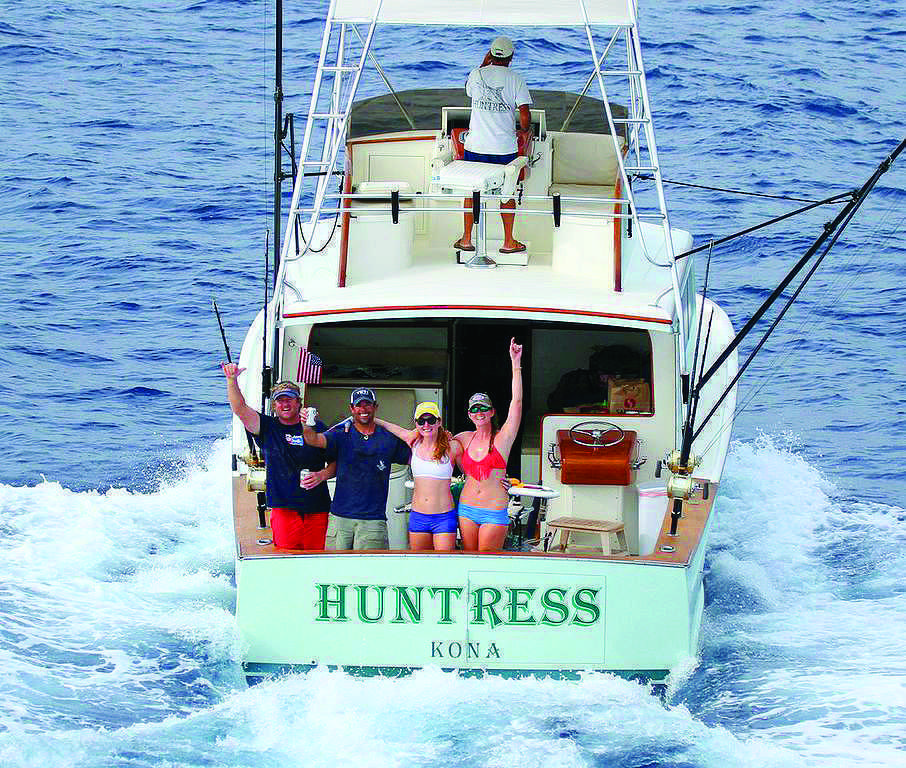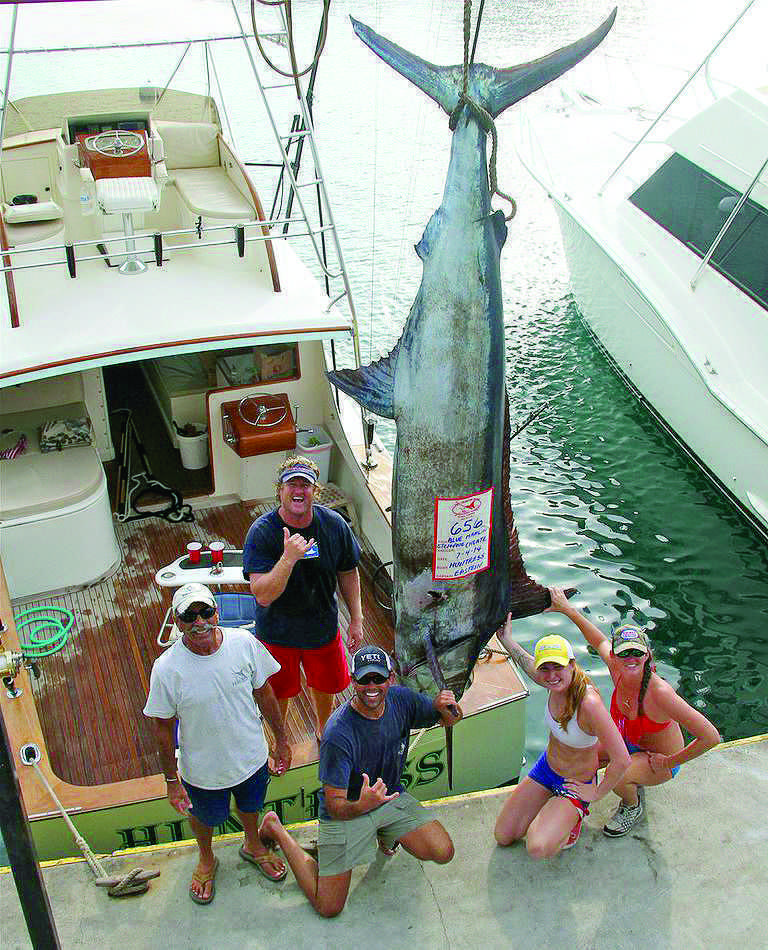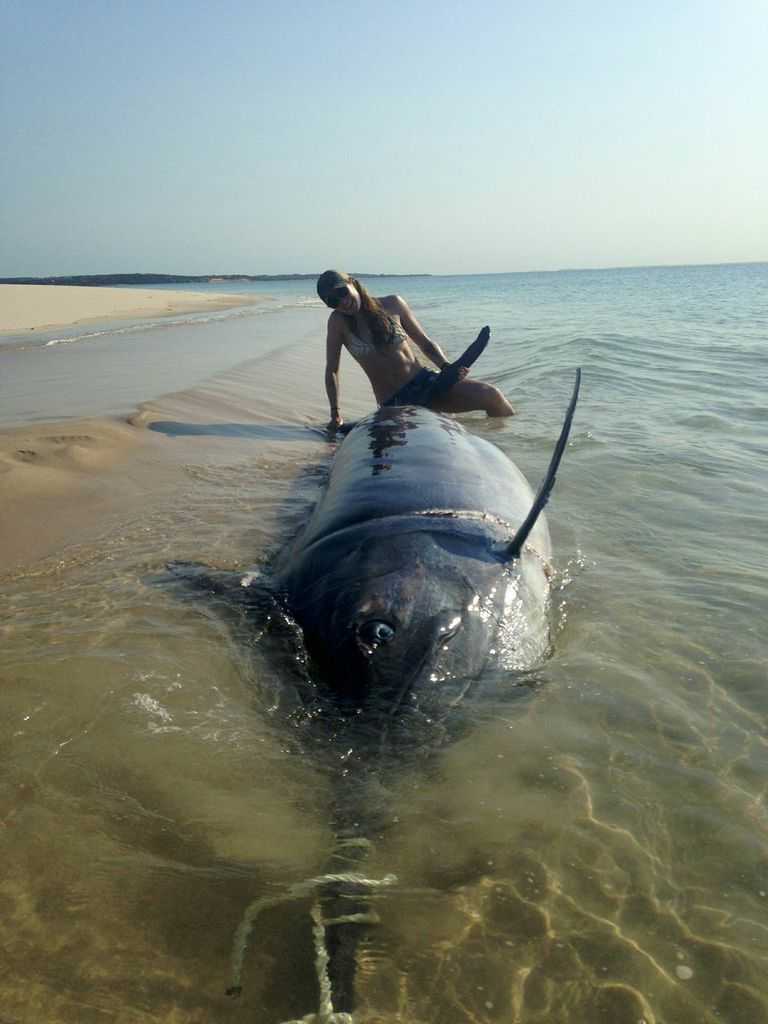I came to Kona, Hawaii with the understanding that it had fish—big fish. I had previously fished the World Cup in Cape Verde, off the coast of Africa, and Madeira, off the coast of Morocco, but I never saw a fish over 500 pounds when it counted. Still, I thought of the Blue Marlin World Cup Championship—one day of fishing for blue marlin over 500 pounds with boats competing from all around the world—as the greatest tournament out there. When I first heard about it, I knew all my Fourths of July would be spent fishing.
Last year I was lucky enough to catch a 1,018-pound black marlin with Capt. Jason Holtz off Mozambique, Africa. Jason normally runs The Pursuit out of Kona, but he was already booked for the World Cup. He recommended Capt. Steve “Stymie” Epstein on the Huntress. The Huntress has an incredible history. Formally the Black Bart, she has caught multiple “granders,” or fish weighing more than 1,000 pounds, under Stymies’ stewardship. I booked him immediately.

I brought my best friend, Lindsea White, with me as my teammate. We arrived to the boat July 1 to do some pre-tournament fishing. Although impressed with our crew, including mates Mitch Lattof and Nate Cary, we fished for two days without seeing a fish. I could tell the crew was getting nervous, as Kona fishing can turn on and off erratically. But over the next two days, Lindsea and I eventually hooked up with some big blue marlin.
I prayed our luck would hold on July 4. We woke up while boats were fishing on the other side of the world. No one had reported any fish yet. As we took to the seas at 8:30 a.m., the bite was slow in many of the competing fisheries. Things were looking up for Kona, as one by one, each of the earlier time zones went out. When Bermuda, the previous winner, still hadn’t caught a fish at lines out, I knew we really had a chance.
It came down to Kona, with 45 boats fishing. The final hour was upon us. As we stood behind the fighting chair sipping drinks, I told Lindsea, “Happy Independence Day.”
She replied, “How beautiful it is to celebrate our freedom fishing in a beautiful place like…” before she could finish her sentence a huge bite piled on the left long. We knew immediately we had a contender.
The fish made its initial jumping spree, giving us a good look, but never took a long run. It decided to go straight down with all the energy we were hoping it would spend swimming away from us. I had the drag in the corner, and Stymie and I started planing her up for 45 minutes. We went through multiple theories throughout the fight: was she tail wrapped? Dead? When she finally let up a little, we knew we had a tough girl on our hands.
The radio called lines out, and we heard another fish weighed in at 597 pounds. We were confident ours was bigger. An hour after the bite, the leader came up and, still sitting in the fighting chair, I heard the other boats cheer as Mitch and Nate handled the fish. I got up, and we all grabbed the rope hitched on the bill, pulling in what we were confident was the World Cup winner. Once the tuna door was closed, we all got to look at each other and scream in utter disbelief. We just won the World Cup.
We arrived at the marina to a cheering crowd at the dock. The fish was weighed. The moment we heard 656 pounds, we all started jumping and hugging with ear-to-ear smiles. Champagne flowed. Pictures were taken. It was the biggest purse in the history of the Cup, and I was the second female to ever win it.

I’m incredibly lucky to be able to fish these tournaments and blessed to have won this one. I’m honored to have fished with the captain and crew that I had. A major portion of my winnings is going to Wild Oceans, a conservation group dedicated to the future of ocean fishing and of which I am a board member.
There will always be backlash to killing fish. The marlin was not wasted, by the way, it went into the local food chain. But through my work with Wild Oceans, I am dedicated to promoting better fishing practices.
As far as tournaments, the Rock and Reel, Marlin Magic Lure, Kona Kickoff and Firecracker tournaments tagged more than 110 fish in Kona in July and weighed only four, a 96-percent release rate. The few marlin killed in the World Cup from more than 100 boats fishing around the world generated many millions in recreational fishing dollars in many economies. Conversely, if those few fish had been killed by a longliner, they would have generated about $1,000.00 in cash sales, maybe.

Whether you’ve been around a while or are just starting out, a real sports fishing conservationists shouldn’t be dissuaded from entering a “kill” tournament, they should consider using any proceeds to promote policies for effective large-scale conservation of these great animals.
By: Stephanie Choate
[easy-social-share]